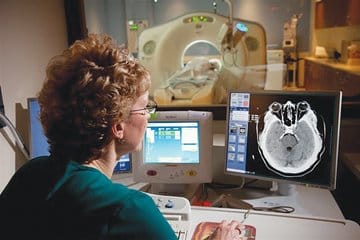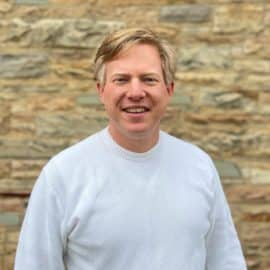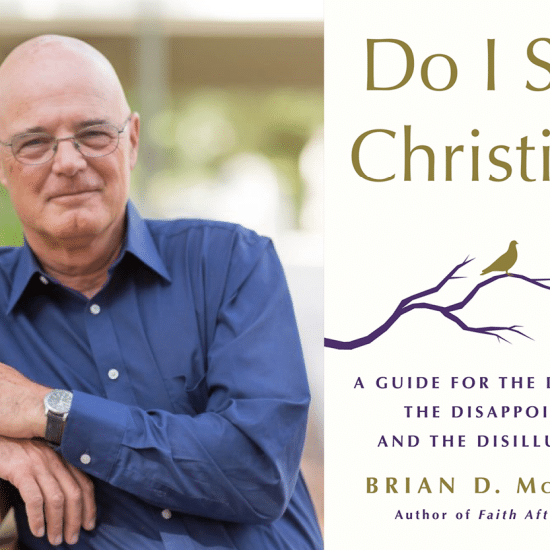Faith-based health care providers can lead the way in developing new models that emphasize wellness and prevention — and create accountable-care organizations focused on the needs of patients and their families, the president of Baylor Health Care System believes.
Eighty years after it pioneered a health-insurance plan that became Blue Cross, Baylor wants to be at the forefront of health care reform — regardless what lawmakers do this year, said Joel Allison, president and chief executive officer of the Dallas-based health care system.
In 1929, Baylor University Vice President J.F. Kimball and Baylor Hospital Superintendent Bryce Twitty developed “the Baylor Plan,” enrolling more than 1,300 Dallas schoolteachers in a prepaid health-insurance plan for 50 cents per person per month.
Initially, many other hospitals opposed the Baylor Plan. But within five years, after it gained a national following, the American Hospital Associ-ation created a central office through which individual hospital plans could be administered. It became Blue Cross, forerunner to Blue Cross-Blue Shield.

More than 5,500 employees work on the campus of Baylor Dallas, where they assist and facilitate diagnostic testing and nursing for 40,000 individuals on an inpatient basis.
|
That plan kept hospitals afloat during the Great Depression, and it served as a lifesaver for many participants who otherwise would have been unable to receive medical care.
Allison believes Baylor — and other faith-based hospitals around the United States that share its sense of mission — can provide similar leadership in the current health care crisis.
“We are in a ministry of healing. We are here to serve, and we are blessed to work with many people who have a sense of calling,” he said.
“We need change, and we need to address change in the right way. We need a new model of care that addresses the needs of patients and the communities we serve.”
Rights and responsibilities both should be emphasized in discussions about health care reform, Allison said.
“Everyone has a right to affordable health care insurance. At the same time, there’s a responsibility of individuals to take care of their own health. Discussion of the right to health care should be tied to accountability,” he said.
Allison characterized as “timeless” the question raised in 1903 by George W. Truett, pastor of First Baptist Church in Dallas, regarding the founding of Baylor: “Is it not now time to build a great humanitarian hospital, one to which men of all creeds and those of none may come with equal confidence?”
That question touches on at least three key issues — accessibility, affordability and appropriateness of setting — that should frame the health care debate today and serve as guiding principles for developing a working model, Allison observed.
Accessibility means making health insurance available, affordable and portable — regardless of pre-existing health conditions, he explained.
“It’s imperative that any plan allow for choice of physician and hospital. That is a sacred relationship between patients and physicians,” he said. “It’s very important that nothing intervenes in that relationship.”
Allison opposes any public plan that would underfund providers by paying Medicare-level rates.
“I would like to see us keep the private-insurance option, giving companies a chance to make the changes that are necessary rather than rushing to move to a public (insurance) option,” he said, referring to a contentious aspect of insurance-reform plans currently before Congress.
At the same time, he supports the possibility of a government “trigger” that would kick in to create a public option to compete with private insurance after three to five years if private insurers didn’t get the job done. That, he said, would give insurance companies incentive to move toward meaningful reform.
He also strongly supports full funding for public safety net programs, particularly coverage for children.
But having access to health insurance and having access to a health care provider are not synonymous, Allison observed.
“Just because people are given coverage doesn’t mean they have access to physicians,” he noted. “Many people covered by Medicaid and Medicare cannot get in to see a physician. That is due in part to the shortage of primary-care providers and in part to low reimbursement — doctors can’t afford to see them.”
Baptists and other Christians can help deal with one aspect of the provider shortage by giving scholarship support to nursing schools, teaching hospitals and other educational entities that provide training for health care professionals, he observed.
Accessibility also means taking health care into communities where it is most needed, and reform should include offering incentives for providers to serve in underserved areas, Allison said.
Baylor, for instance, is a partner in Project Access Dallas, a network of volunteer health care providers who offer free medical care and support services to the working uninsured in Dallas County. Last year, 54 doctors in the HealthTexas Provider Network — Baylor’s affiliated physician group — donated about 1,000 hours of volunteer time to charitable and faith-based clinics.
Jim Young, who directed community ministries with the Baptist General Convention of Texas and Baptist Child & Family Services, has been working to launch Faith Family Clinic next month on the west side of San Antonio to provide health care for the working poor. In Bexar County, 24.9 percent of the population lacks health insurance, he noted.
“Because they don’t have insurance, they wait about seeing a doctor until they are sick enough to go to the emergency room, and then they walk out with huge medical bills. And those bills end up being a leading cause of bankruptcy,” he said.
For many uninsured people, the emergency rooms of nonprofit hospitals become primary-care providers. Last year, Baylor provided $107,522,750 in unreimbursed charity care — much of it through the emergency room, Allison noted.
Factor in more than $20 million in unreimbursed cost of government-sponsored indigent health care through Medicaid, more than $308 million in unreimbursed cost of government-sponsored health care through Medicare and about $16 million in other community benefits, and Baylor provided in excess of $452 million in benefits to its community last year, he reported. Any health care reform proposal should recognize the role of safety net hospitals — mostly faith-based nonprofits — that provide a disproportionate share of charitable care, Allison observed.
Rather than pay the high costs of emergency-room treatment for primary health care, health care should be reformed to reward wellness and prevention programs — as well as recognizing proven quality, such as lowered readmission rates, he asserted.
He stressed the importance of developing a continuum of care with careful physician alignment and the creation of “medical homes” — a setting that facilitates partnerships between patients and their personal physicians.
“We should start paying for quality and value, recognizing those physicians and hospitals that can demonstrate evidence of positive outcomes,” Allison said. “In some cases, current reimbursement rewards volume rather than outcomes and quality.”
Allison sees Baylor’s diabetes initiative in southern Dallas County as a model for community-based delivery of care, as well as education and prevention. Baylor breaks ground this month on its Diabetes Health and Wellness Institute at the Juanita J. Craft Recreation Center in South Dallas. Prevalence of diabetes in Dallas County is 11.4 percent — higher than the state or nation — and is disproportionately high among the low-income African-American and Hispanic residents of South Dallas.
Baylor Health Care System has committed $15 million over three years to plan and develop the institute, which will create a community-based health delivery model that not only provides care in neighborhoods where diabetes if most prevalent, but also stresses prevention through exercise classes, nutrition and cooking classes, and wellness education.
Similarly, Young hopes Faith Family Clinic in San Antonio will be able to work in partnership with churches to promote nutritional education and healthy lifestyles.
“The church needs to reclaim its position in teaching health and wellness,” he said. “We particularly want to work with smaller churches to do health and wellness training where it’s needed most.”
Regardless whether lawmakers reach consensus on health care reform, community-based clinics will continue to serve a vital need, Young predicted. “There will always be gaps in service. If Congress does pass something, it will help those at the upper end of the spectrum among the working uninsured, but those at the lowest end will not be touched. In particular, undocumented immigrants are not in the picture, and they are a population that needs somebody to help meet their needs.”
Taxpayers may resist the idea of paying for the health care of undocumented aliens, but Christian caregivers do not have the option of turning those people away, Young and Allison agreed.
“We have a responsibility to the alien and stranger in our land,” Young said.
Ken Camp is managing editor of the Baptist Standard.






